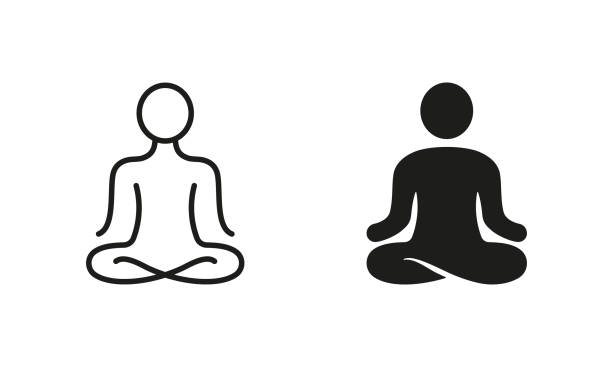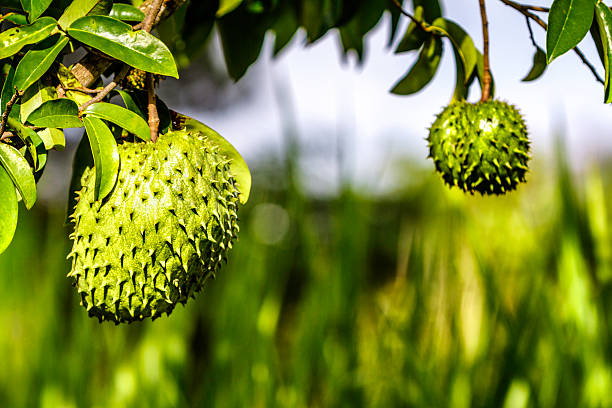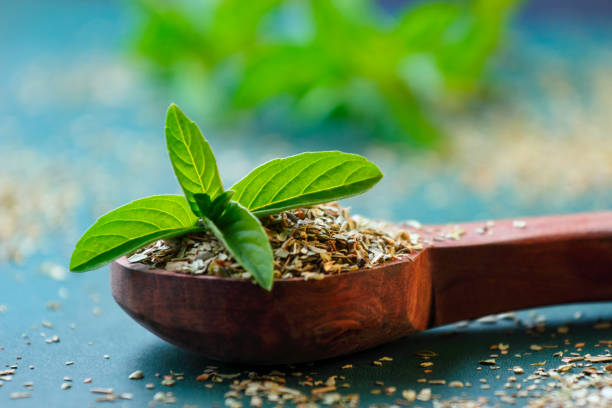In many cases, well-known people have also claimed that they have benefited from changes in diet or alternative therapies in addition to traditional treatment for cancer. In some cases, it was completely cured.
However, many charities that treat cancer say they do not have medical evidence of any therapy or alternative ways to treat cancer. As a result, the question arises, what are these alternative therapies or therapies and how is their use increasing?
Former Indian cricketer and politician Navjot Singh Sidhu said in November last year that his wife is now completely cancer-free. He kept ingredients like lemonade, raw turmeric, apple cider vinegar (vinegar), neem leaves, basil, sweet pumpkin, pomegranate, amalaki, beetroot and walnut in his daily diet.
After Sidhu’s video went viral, more than 200 oncologists in India issued a joint statement.
In it, they claim that research is underway on the effects of such natural ingredients in medicine, but they do not have evidence to support their use.
Rather, experts urged everyone not to delay the original treatment of cancer by relying on these ‘unproven’ ingredients or methods.
Australian Dale Ellie McPherson revealed in September that she was diagnosed with breast cancer seven years ago. Instead of chemotherapy, he opted for alternative treatments.

Doctors say that in addition to chemotherapy in the case of breast cancer, many people use acupuncture (treatment method by pressing or blowing needles at different points of the body), yoga, meditation (special methods to relax the body and mind).
These can help relieve pain and make the patient feel better. But doctors have also warned against trying to cure only by adding special natural ingredients or minerals, vitamins to the diet, excluding medical treatment.
Charities claim that some of these alternative treatments can be harmful or cause serious side-effects, even disrupting medical treatment.
A 2018 study published in the medical journal JAMA Oncology found that reliance on alternative therapies was associated with a lower risk of cancer survival in patients.
But many people with cancer are still relying on these methods. The popularity of these methods is also increasing.
According to a survey by the American Society of Clinical Oncology (ASCO), 40 percent of adults in the United States believe that alternative treatments can cure cancer.
Videos that indicate a “cancer-cure” diet are being watched by millions of people online, and such books are topping sales charts on Amazon.
Recently, a thread was widely shared on the social network X (formerly Twitter) which said that cancer can be cured ‘naturally’ mainly by changing the diet. The thread has 200,000 likes in 48 hours.
Patients are told to fast or not to eat to ‘starve’ cancer. It is also said that by eating certain foods, ‘stem cells can be strengthened’ by ‘influencing DNA’.
Macmillan, a cancer charity, says cancer doctors should be consulted before using any alternative methods.

Why is alternative methods growing in popularity?
Alternative methods or therapies are being promoted as ‘miracle cures’ on social media without any evidence.
British cancer surgeon Dr. Liz O’Riordan says, “Cancer is a terror. We need to talk about the risks and other issues. Patients want hope, they want a promise of healing. But a mainstream doctor cannot provide that.”
These so-called cures are labeled as painless or natural, but they can actually worsen the condition of at-risk patients and disrupt medical treatment or cause severe side effects.
Another reason is that good quality cancer treatment is not accessible to many people around the world and it is quite expensive.
Dr Liz O’Riordan says: “Where money is an issue, cheaper methods may seem very attractive. My concern is that people are targeting at-risk people and selling them products that they don’t need. “
According to a study published in the British Medical Journal, there is a lack of awareness about cancer and its treatment in the African region. There is also a shortage of trained medical providers. People’s medical insurance rates are also low. As a result, people’s dependence on alternative methods is very high.
Dependence on such medical methods is also associated with culture in many cases.
There are many ancient methods of medicine in Africa, Asia, and India, and their credibility has increased due to philosophical explanations. Although there is evidence that some of China’s traditional medical methods and Ayurveda work in the treatment of some diseases, evidence of their helpful role in the treatment of cancer is insufficient.

What are the most common alternative therapies and diets in the world?
Ayurvedic ‘treatment’
Ayurveda is an ancient Indian system of medicine. This treatment is mainly given using a variety of natural ingredients and pressing on different areas of the body. Its popularity is increasing day by day worldwide. According to a report by Market Research Futures, its market could triple by 2028.
In Ayurveda, turmeric, a widely grown spice in the Indian subcontinent, is believed to be a product that has cancer-curing properties.
According to a report in the health journal Lancet, homeopathy, biopathy, neuropathy or herbal methods, home remedies, treatment with wheat seedlings or water, acupuncture are dependent on various methods in remote rural areas of India.
Some of these may alleviate pain and pain, but Dr. O’Riordan thinks that it does not play a role in cancer treatment.
Cancer charity Cancer Research UK says a component of turmeric called curcumin can kill cancer cells, but it can happen to certain types of cancer.
However, more research is needed in this regard. There is no clear evidence that turmeric or curcumin can prevent or cure cancer.
Traditional Medicine in China
According to a review article of a study in the Journal of Clinical Oncology, there is a growing trend of choosing Chinese traditional medicine (TCM) for cancer treatment in many parts of the East and the West.
But cancer experts have rarely questioned its safety and effectiveness.
TCM is a discipline that uses acupuncture, massage therapy, herbal therapy, and tai chi (a martial art). Apart from this, hundreds of Rakemor Nirjas are also taken from different types of herbs.
Dr. Liz O’Riordan says TCM can be used as an adjunct to medica treatment on the advice of a doctor. However, there is a risk that some herbal ingredients can disrupt the original treatment.

Diet changes
Keto (method of increasing protein by reducing sugar in the food list), vegan (vegetarian or vegetable-based diet) or fasting based diets are becoming popular in the world. It is also said to control the diet to keep cancer ‘starving’.
Cancer researcher Dr David Robert Grimes told the BBC: “You can’t starve cancer, you can only starve your body. If you lose weight in this process and become weak, the effects of cancer can be more severe. “
He also mentioned that many patients are leaning towards such different diets without thinking about the risk or harm.
Dr Kanupriya Bhatia, an oncologist at Mohandai Oswal Hospital in Punjab, urges cancer patients not to be influenced by such campaigns on social media.
“Do not start eating or drinking anything on your own initiative (to get rid of cancer) that can cause harm later. “
Phenbendazole
This drug phenbendazole is used in the case of parasitic infections in the body of various animals. Its popularity in cancer treatment increased after a US businessman claimed that this drug was cancer-free by taking it with other alternative therapies.
At first, he didn’t say he was also taking part in other clinical trials of cancer treatment.
In South Korea, the drug is sold in such quantities that stocks run out. Many of the users began sharing their experiences on social media, although one comedian and singer later claimed that the drug was not effective on him, which is why he stopped taking it.
Cancer Research UK said the drug had not undergone clinical trials and its safety had not been proven.

The fruit, leaves and bark of the graviola tree have long been used as an antidote to various diseases in various parts of Africa and South America. It has also been proven to be effective in some infections.
There is also information spread locally and on the internet that graviola fruit has a role in cancer prevention. Even some social media posts claim that this fruit is ten thousand times more effective than chemotherapy.
Various cancer charities and French cancer institutes say there is no ‘miracle food’ or ‘miracle food’ to remove cancer.
What do doctors and cancer charities say?
Experts warn that there is a serious danger hidden in such alternative treatment methods. Studies have shown that the use of these methods reduces the chances of disrupting the original treatment or the patient’s survival.
Dr. Riordan said, “In addition to medical treatment, it may be okay to apply such a procedure. The problem is when only these methods are used. In this case, the risk of death of the patient increases by two or two and a half times. “
Dr. Grimes said that cancer treatment is based on strong research.
“People around the world are recovering from cancer and their survival rates are rising, not because of alternative methods, but because of the hard work of scientists and doctors,” he said.
Dr Harit Chaturvedi, chairman of Max Institute of Cancer Care, said, “Cancer is not a disease that can be cured by a magical formula. “
Rather, in the modern medical system, special treatment plans are given for each patient by investigating various issues including their type of cancer, genetic special changes, the organ from which cancer has spread.
Doctors usually support patients if they want to take a helpful method that will provide some relief in the illness. But they never talk about relying only on these methods.
